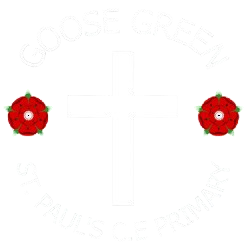Phonics
Phonics at St Paul's is taught using Read Write Inc. This involves a daily phonics lesson in which children are grouped by ability which allows teaching staff to accelerate learning by repetition of existing sounds that they know along with the structured introduction of new sounds. Our phonics programme is supplemented by decodable books which are closely matched to the children's phonic ability.
Read Write Inc. also allows for interventions for children in KS2 who have not passed their phonic screening check and those who need additional phonic interventions. We believe that the best strategy for learning to read using phonics is to allow children to keep up rather than catch up.
All staff in school have been trained to use Read Write Inc. and use phonic strategies in all subject areas.
The Order of Teaching Sounds
In Read Write Inc phonics, the individual sounds are called ‘speed sounds’ – because we want your child to read them effortlessly.
Set 1 Speed Sounds
Set 1 sounds are the initial letter sounds. They are taught in the following order.
m, a, s, d, t, i, n, p, g, o, c, k, u, b, f, e, l, h, sh, r, j, v, y, w, th, z, ch, qu, x, ng, nk
Set 2 Speed Sounds
There are 12 Set 2 ‘speed sounds’ that are made up of two or three letters, which represent just one sound, e.g. ay as in play, ee as in tree and igh as in high.
When children learn their Set 2 sounds they will learn: · the letters that represent a speed sound e.g. ay, a simple picture prompt linked to the ‘speed sound’ and a short phrase to say e.g. may I play.
Every speed sound has a list of green words linked to it, so your child can ‘sound out’ and ‘sound blend’ words containing the new speed sound they have just learnt, for example s-p-r-ay = spray.
Set 3 Speed Sounds
When learning their Set 3 speed sounds they will be taught that there are more ways in which the same sounds are written, e.g. ee as in tree and ea as in tea.
Nonsense Words/Alien Words
As children develop their skills, we want them to be able to apply their knowledge of sounds and decoding skills to read any unfamiliar word, whether it is real or nonsense. During lessons, children will have opportunities to practice their decoding skills by sounding out the letters in ‘Alien word’. This shows us that children are using their decoding skills and not relying on existing knowledge of real words. This is an important part of the Phonics Screening Test which children complete at the end of Year 1.
Here are some websites that have some interactive games your child can play to practice their skills.
Phonics Screen Check
In Key Stage 1, children are assessed at the end of Year 1 using a Government Statutory Assessment Tool known as the Phonics Screening Check (This will take place during the week commencing Monday 13th June 2022). This screening check, demonstrates if your child has learnt phonics and can use their skills to decode words to an appropriate standard.
Phonic Progression Map
